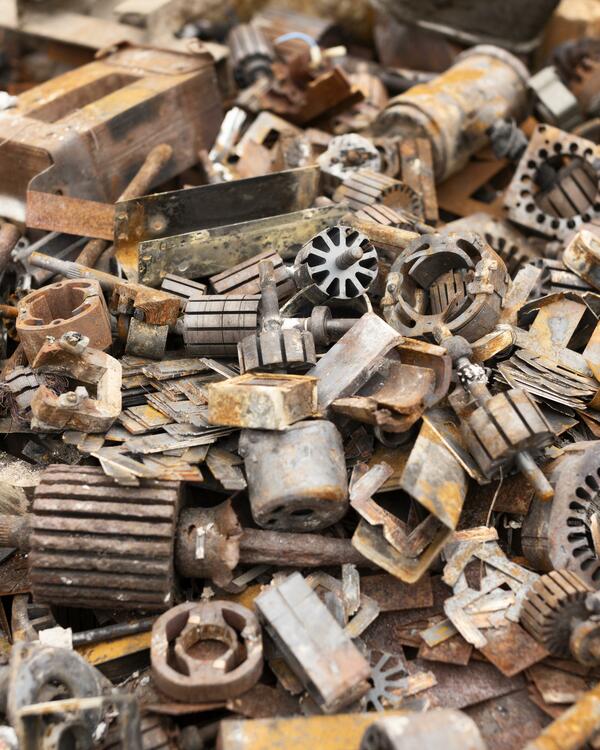Notifications
ALL BUSINESS
COMIDA
DIRECTORIES
ENTERTAINMENT
FINER THINGS
HEALTH
MARKETPLACE
MEMBER's ONLY
MONEY MATTER$
MOTIVATIONAL
NEWS & WEATHER
TECHNOLOGIA
TV NETWORKS
VIDEOS
VOTE USA 2026/2028
INVESTOR RELATIONS
COMING 2026 / 2027
ALL BUSINESS
COMIDA
DIRECTORIES
ENTERTAINMENT
FINER THINGS
HEALTH
MARKETPLACE
MEMBER's ONLY
MONEY MATTER$
MOTIVATIONAL
NEWS & WEATHER
TECHNOLOGIA
TV NETWORKS
VIDEOS
VOTE USA 2026/2028
INVESTOR RELATIONS
COMING 2026 / 2027
 Shawn K. Dunn -
Jan 6 -
Other -
Akron Scrap metal
-
192 views -
0 Comments -
0 Likes -
0 Reviews
Shawn K. Dunn -
Jan 6 -
Other -
Akron Scrap metal
-
192 views -
0 Comments -
0 Likes -
0 Reviews

Scrap metal recycling has become an integral part of the global economy, contributing to environmental conservation and sustainable development. In cities like Akron scrap metal recycling is not just a profitable business but also a vital part of reducing waste, conserving natural resources, and minimizing energy consumption. Akron, with its rich industrial history, has become a hub for scrap metal collection and processing, offering both economic and environmental benefits.
In this blog, we will explore the importance of scrap metal recycling in Akron, the types of metals commonly recycled, and the role local recycling centers play in the community.
Akron, often known as the "Rubber City" due to its historical ties to the tire and rubber industry, has evolved into a dynamic city where manufacturing, commerce, and sustainability intersect. The rise of scrap metal recycling in Akron mirrors this evolution, creating an efficient and environmentally conscious way to manage metal waste.
Recycling scrap metal helps divert waste from landfills and reduces the need for mining new metals, which can be harmful to the environment. By recycling metals locally in Akron, the city is helping lower carbon emissions and conserve natural resources. Scrap metal recycling also saves energy, as it takes much less energy to process recycled metal than to extract new metal from ore.
Recycling scrap metal generates revenue and creates jobs within the Akron community. The scrap metal industry supports various sectors, from collection to processing and transportation. Local businesses can recycle metal waste, providing a reliable source of raw materials for industries like construction, automotive manufacturing, and electronics. This helps keep the economy moving while reducing costs for manufacturers.
By recycling scrap metal, Akron can reduce the need for raw material extraction. The production of metals like steel, aluminum, and copper requires significant amounts of energy, water, and land. By turning scrap metal into new products, we decrease the environmental impact of mining and extraction.
Akron’s scrap metal recycling facilities process a wide range of metals, each of which plays a key role in various industries. These metals are sorted, cleaned, and melted down to be reused in new manufacturing processes. Some of the most common types of scrap metal recycled in Akron include:
Ferrous metals, which contain iron, are the most widely recycled materials. These metals are magnetic, which makes them easier to sort. Common ferrous metals include:
Steel scrap is one of the most abundant metals in Akron, largely due to the city's industrial past. The recycling of steel not only saves energy but also helps to preserve raw materials for future use.
Non-ferrous metals do not contain iron and are non-magnetic. These metals are typically more expensive than ferrous metals because of their scarcity and unique properties like corrosion resistance and conductivity. Some of the most common non-ferrous metals recycled in Akron include:
Non-ferrous metals are highly valuable in the recycling industry because they can be recycled multiple times without losing their properties. This makes them an essential part of Akron’s recycling efforts.
Although less common than ferrous and non-ferrous metals, precious metals like gold, silver, and platinum are sometimes recovered during scrap metal recycling, particularly from electronics. These metals are rare, highly valuable, and often used in small quantities in devices like phones, computers, and jewelry.
The process of recycling scrap metal in Akron follows a structured, efficient system that ensures maximum recovery of valuable materials. The steps typically include:
Scrap metal is collected from a variety of sources, such as construction sites, old vehicles, household appliances, and industrial equipment. Local scrap metal yards and recycling centers are pivotal in this process, offering drop-off points for residents and businesses looking to dispose of unwanted metal materials.
Once the metal is collected, it is sorted into ferrous and non-ferrous categories. Ferrous metals are easily separated using magnets, while non-ferrous metals must be manually sorted or processed with specialized equipment.
The sorted scrap metal is then shredded into smaller pieces to facilitate easier melting. The metal may also be cleaned to remove contaminants like dirt, plastic, or rubber, ensuring the final product is of high quality.
Once the metal has been cleaned and shredded, it is melted in large furnaces. The melting process removes any remaining impurities, producing high-quality molten metal that can be cast into new products.
The molten metal is then poured into molds or ingots and sent to manufacturers who will use it to create new products, such as steel beams, car parts, aluminum cans, and electrical wires. The cycle of recycling continues, reducing the need for new raw materials and ensuring that the metal is reused for future generations.
Akron is home to several scrap yards and recycling centers that play a vital role in the community. These businesses not only provide a service to residents looking to recycle scrap metal but also contribute to the local economy and environmental sustainability.
The growth of scrap metal recycling in Akron offers several key benefits for the local community, the economy, and the environment:
Recycling scrap metal reduces the need for mining new resources, which can have harmful environmental effects. Akron’s recycling efforts help conserve valuable metals and reduce the city’s overall carbon footprint.
Recycling metal uses far less energy than producing new metal from raw ore. The recycling process conserves energy, reduces greenhouse gas emissions, and helps lower the overall environmental impact of metal production.
The scrap metal industry creates jobs in Akron, from metal collection and sorting to processing and transportation. By promoting recycling, Akron not only helps reduce waste but also stimulates local economic activity.
Scrap metal recycling diverts significant amounts of metal waste from landfills, reducing pressure on landfill space and preventing hazardous materials from polluting the environment. This helps Akron move toward a more sustainable, waste-free future.
Akron's scrap metal recycling efforts are vital for both the local economy and the environment. By recycling ferrous, non-ferrous, and precious metals, Akron reduces waste, conserves natural resources, and supports sustainable manufacturing practices. The city’s scrap yards and recycling centers play a key role in making this process possible, providing essential services to residents and businesses alike.
As Akron continues to embrace sustainability, the importance of scrap metal recycling will only grow. By understanding the value of recycling and actively participating in these efforts, residents and businesses can help contribute to a cleaner, greener future for Akron and beyond.
